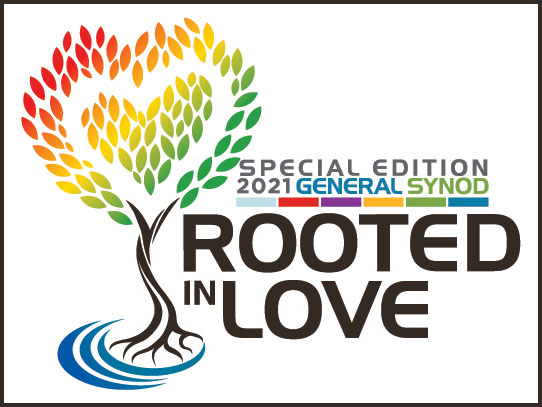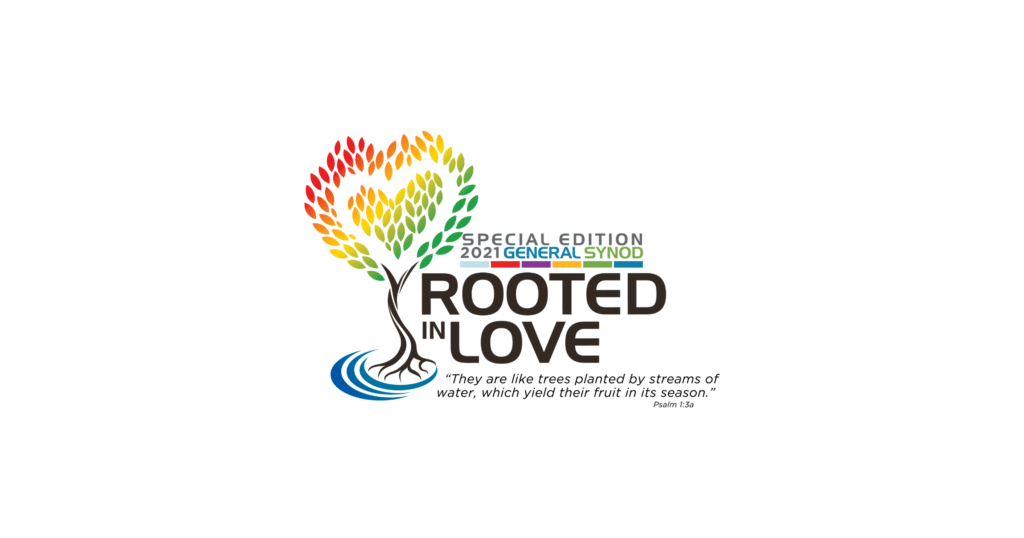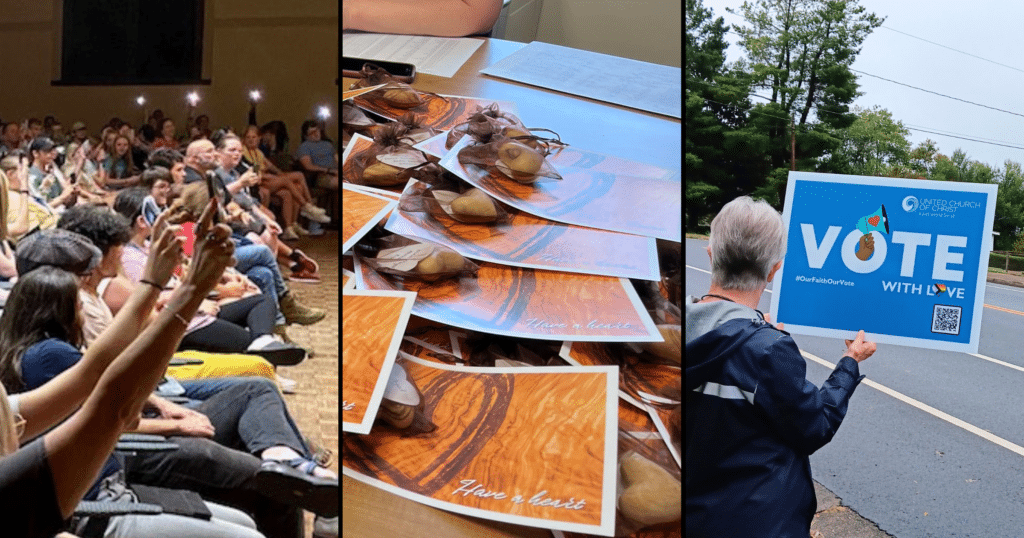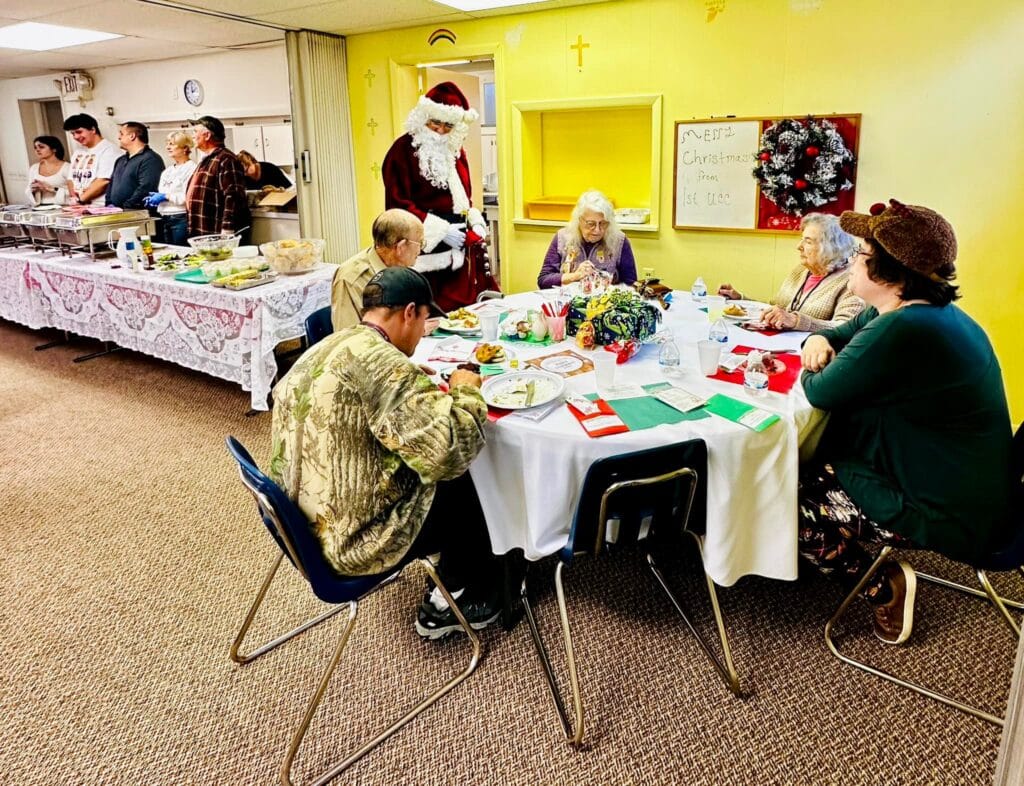Synod is asked to decry ‘corrupt’ bail system and declare racism a public health crisis
The 2021 General Synod of the United Church of Christ, meeting July 11-18, will consider 11 resolutions and several bylaw changes. This is one in a series of articles about them. Readers can view an initial summary here and find full texts at the Synod website.
Racism affects U.S. life in many ways. UCC delegates will consider speaking on two of them this summer.
Several UCC bodies are asking the General Synod to:
- Call for reform of the “corrupt, unfair and ineffective” system of bail bonds, and
- Declare racism a public health crisis.
Each of those proposed actions is in the form of a “Resolution of Witness,” needing “yes” votes from two-thirds of delegates to pass.
Dramatizing bail reform
Members of Community UCC, Raleigh, N.C., wrote the resolution on cash bail — and a skit to go with it. They hope to play the video of their 6-minute courtroom drama for Synod delegates who will review the resolution.
Community UCC “has been studying and discussing bail bonds for a few years,” said member Gary Smith. He co-chairs the congregation’s Do Justice Ministry and credits church member Adrienne Little with calling attention to the issue. “Our goal has been spreading the message that the cash bail bond system needs to be reformed,” Smith said.
Do Justice members sought and won approval of the resolution from the congregation in 2019 and the Southern Conference in 2020. Along the way, they created the skit and made a video of it with a local theater company. It depicts a Black man and a white woman charged with the same crime. One of them cannot afford bail — and suffers tragic consequences for that reason alone.
The proponents used the video with Southern Conference delegates and will ask to show it at Synod as well, Smith said.
‘Usurious’ $2 billion industry
The resolution indicts the $2 billion bail industry in heavily footnoted background and “whereas” sections. Cash bail requires defendants — before they are even tried — to pay money to a court or face jail time. This system, the resolution says, “usually requires low-income individuals to agree to usurious terms for borrowing such funds.”
“The inability to make cash bail extracts an untold human cost on the accused,” it says, including “loss of employment, housing and, often times, family support.”
“We hope that our state legislature will recognize these national religious votes as reasons to take bail bond reform seriously.”
Gary Smith, Community UCC, Raleigh, N.C.
If Synod adopts the resolution as written, it will declare “the racial and social injustices inherent in the present cash bail bond systems” and call on:
- The U.S. Congress and state legislatures to reform them “to be more just and humane.”
- UCC members to “raise their consciousness of the theological, social, racial, ethnic and economic inequities” that make current bail systems possible.
“If the resolution passes, we hope that individuals and congregations of the UCC will find ways to seek reform,” Smith said. He said he hopes it will be “a model for other denominations to seek their own actions” — and that religious voices will matter. In North Carolina, at least, “we hope that our state legislature will recognize these national religious votes as reasons to take bail bond reform seriously.”
‘Racism undermines health’
The idea of naming racism as a public health crisis keeps coming up in UCC circles. In June 2020 the national officers of the church called racism a pandemic; speakers in a webinar, “The Cross and the Lynching Tree,” called it a virus. The featured speaker in a “State of Black Bodies” webinar on April 6, Dean Kelly Brown Douglas, said it is “long past time to declare white supremacy a health emergency.”

Now comes the proposed resolution from the Council for Health and Human Service Ministries and Council for Racial and Ethnic Ministries. It will go directly to a Synod plenary session for debate.
Racism, the resolution says, “seeks to maintain the mountaintop for a select few and a valley of dry bones for the global majority.” In four pages of annotated background and “whereas” statements, it cites research showing how “racism undermines health.”
Avoidable problems
It lists “avoidable health disparities” that affect African-descended, Indigenous and other people of color. These include:
- Lower life expectancy.
- Higher infant and maternal mortality.
- Poorer treatment for pain, cancer, cardiovascular disease, mental health, and at the end of life.
- Inadequate access to, and quality of, health care.
“Police violence, state-sanctioned terror, and the systems that uphold and condone them are an integral part of this public health crisis.”
From the proposed “Resolution to Declare and Respond to Racism as a Public Health Crisis”
The resolution also mentions trauma: “Police violence, state-sanctioned terror, and the systems that uphold and condone them are an integral part of this public health crisis.” These, it says, cause death and diseases such as high blood pressure and diabetes.
If the resolution were to pass as written, the Synod would declare racism a public health crisis and call on:
- The U.S. Congress and state legislatures “to pass legislation that would address social determinants of health.” It would cite the Anti-Racism in Public Health Act, introduced in the House and the Senate in 2020, as an example.
- National ministries of the UCC to “enable and encourage” the whole church to “develop methods” to address the crisis. It would mention, among other things:
- “Theological, bioethical and public health perspectives.”
- Policies that favor health equity over “those that cause harm, violence and death.”
- Getting organizations inside and outside the church to respond to the crisis together.
Personal trauma
The two councils proposing the resolution — CHHSM and COREM — had submitted separate resolutions on the topic. General Synod staff member Kevin Peterson then alerted and connected the two submitters. The Rev. Elise Berry of the CHHSM staff worked with COREM representatives — Moderator Zillah Wesley and Barbara Baylor — to come up with a single, jointly sponsored document.
“Every COREM ministry has experienced personal trauma around health disparities and COVID-19.”
Zillah Wesley, Moderator, UCC Council for Racial and Ethnic Ministries
Wesley, of Washington, D.C., said COREM got involved as a follow-up to a 2020 health survey by the UCC’s Racial Ethnic Health DisparitiesTask Force. She said the issues named in the resolution come from the experiences of the communities that COREM’s six member groups serve. Those groups are Colectivo de UCC Latinx Ministries; Council for American Indian Ministry; Ministers for Racial, Social and Economic Justice; Pacific Islander and Asian American Ministry; United Black Christians; and United Samoan Ministries.
“Every COREM ministry has experienced personal trauma around health disparities and COVID-19,” Wesley said. “Our communities are lacking insurance coverage, not having access to health care, and experience secondary health issues.” She noted, for example, that two COREM groups — PAAM and UBC — offered COVID-19 grants “to assist our constituents to address health care and racial disparities.”
‘Systemic injustices’
CHHSM felt it could not “be silent during a global pandemic—particularly when devastating harm has not only been caused by the virus itself, but by systemic injustices that are as long-standing as they are preventable,” said Berry. She is the agency’s associate for advocacy and leadership development. CHHSM sees working for just health systems as part of its mission, as important as serving its member organizations across the U.S.
“Though racism’s impact on health is certainly not news to those working in the public health and racial justice spheres, the COVID-19 pandemic has highlighted and exemplified health disparities in a way that can no longer be ignored by the country as a whole,” she said.
“My hope is that people will not only feel called and compelled to action, but that they will have a liberating approach from which to understand, envision, embody and perhaps even deconstruct what that action will look like. … Because racism is everywhere and everything affects health, this might also lead to a deepening of the ministry already present—where Spirit has already been speaking.”
Related News
Year in Review: Top news highlights of 2024
The United Church of Christ News team has spent each week of 2024 delivering stories that...
Read MoreNo more lonely little Christmases: Chasing away the blues now and into the New Year
With the loneliness epidemic in the U.S. continuing to affect every one in five people, many...
Read MoreUCC Annual Report video brings to life impactful ministries
Leaders of the United Church of Christ are thrilled to share the newly released 2024 Annual...
Read More


